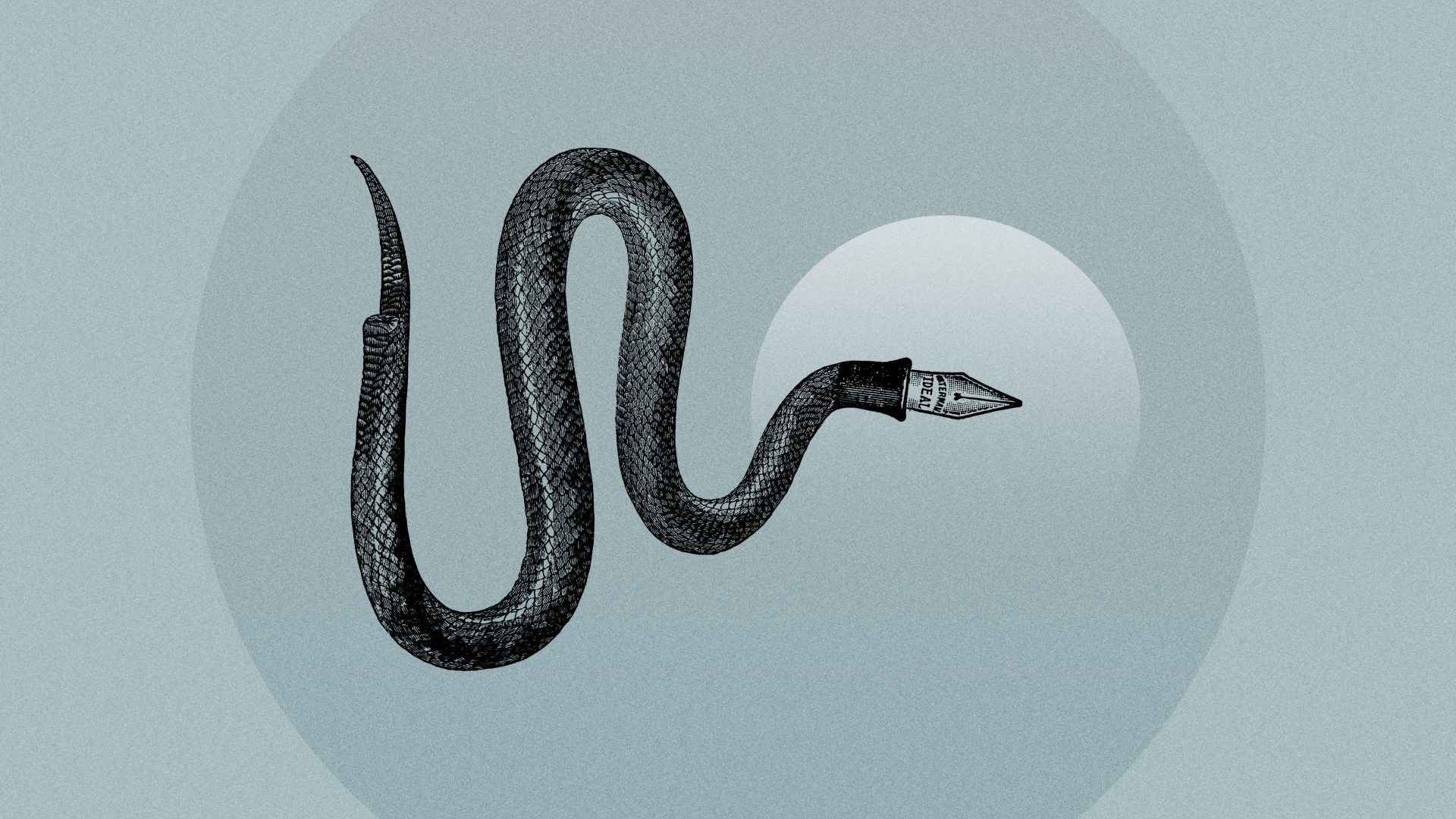What a twisted little snake pit the English literary world is, full of hissing contempt and venomous gossip. Yeats described poetry as “the social act of the solitary man”, but in my experience writers of prose and verse, together with their publishers and even, gulp, agents, can’t be prevented from socialising – they’re more or less like… snakes: you have to beat them off with a stick.
And of course, in the context of a neoliberal economy where cultural curacy is a thing of the past, and these sole traders in prosody and prolixity have to act as their own marketeers and publicists, such gatherings positively writhe with reptilian greed for preferment and profit.
Or at least they did when I last had anything to do with such events – which, I confess, was a long time ago. Between them, the financial crash and the pandemic have probably put paid to the literary parties of yore, when the publishers – who funded such jollies – thought nothing of hiring a rooftop venue and sousing it in champagne, even for a writer with only fair-to-middling sales, or a literary cachet of one dubious form or another.
Who needs nowadays to stump up for such bookish bacchanals, at which irate novelists would even offer out critics who’d negatively reviewed their latest opalescent offering (critics who might well be novelists themselves) when the real desideratum – when it comes to pushing product – is a Twitter pile-on. Still, with fewer opportunities to trash-talk your opponents – sorry, I mean “colleagues” – in person, how do you gauge your position in the pecking order?
An important part of which is retaining at least a gloss of objectivity when it comes to either log-rolling your allies (and their agents and publishers), or bludgeoning your enemies (together with their publishers and agents) with logorrhoea. I thought about this when I read two reviews of Philip Hensher’s latest novel, To Battersea Park, one by the veteran shit and shit-bagger Peter Kemp in the Sunday Times, and the other by one of Eng. Lit’s current Mister Nices, Alex Preston, in the Guardian.
Kemp (and I’ll declare an interest here: he’s roundly condemned me and all my works on more than one occasion), isn’t a novelist himself, and his review of Hensher’s novel is for sheer concentrated withering contempt sans pareil; by marked contrast, Preston manages to convey the impression that To Battersea Park, withal its problematic passages and longueurs, is nonetheless that most oxymoronic of phenomena in the current cultural climate: “a significant work of literature”.
Years ago, Hensher told me his golden rule when it came to maintaining his own gloss; which was that he wouldn’t review anything by someone whose kitchen he’d been in, and that in general he saw this as best practice for all book critics. Well, Hensher has both reviewed my work and latterly been in my kitchen – Preston has been in my kitchen and subsequently reviewed me (with the same kind of equivocation he applies to Hensher’s latest); and I’ve no idea if either of them has been in either’s cooking area.
As for Kemp, I couldn’t imagine him in any part of my house except swirling around the toilet bowl prior to a rapid exit.
Hensher might salvage a little self-respect by recalling Oscar Wilde’s observation that when the critics are divided the artist is in accord with himself, but what amused me most about the Preston/Kemp binary was that they both chose exactly the same descriptive passage to praise and excoriate.
Hensher writes that the greenfly on his protagonist’s roses were “pretty as they feasted, those pests, the summery inner luminescence of G major within their little bodies.” Preston calls this “beautiful writing”. Kemp is more inclined to view it as “comically peculiar”, and presumably just another aspect of his victim’s “pompous aesthetic attitudinising”.
That this microscopic squall in a doll’s house tea cup should acquire even this much attention is in the current era itself pretty absurd. Preston’s review has garnered precisely zero comments on the Guardian’s website – Kemp’s on the Times website has five, of which only one makes a substantive point – the others being persiflage.
Whatever the merits of Hensher’s novel, the fact is that no one much in England cares much about so-called literary fiction any more, all fictive needs being taken care of either by painfully middlebrow scribes or social media posts detached from all reality.
Obviously, the writers and critics have only have themselves to blame as they either suck up to one another frantically, or bite down hard so as to inject their venom yet deeper – everyone wants to be the last man or woman standing, but that’s impossible given – as I believe I noted above – they’re snakes.



